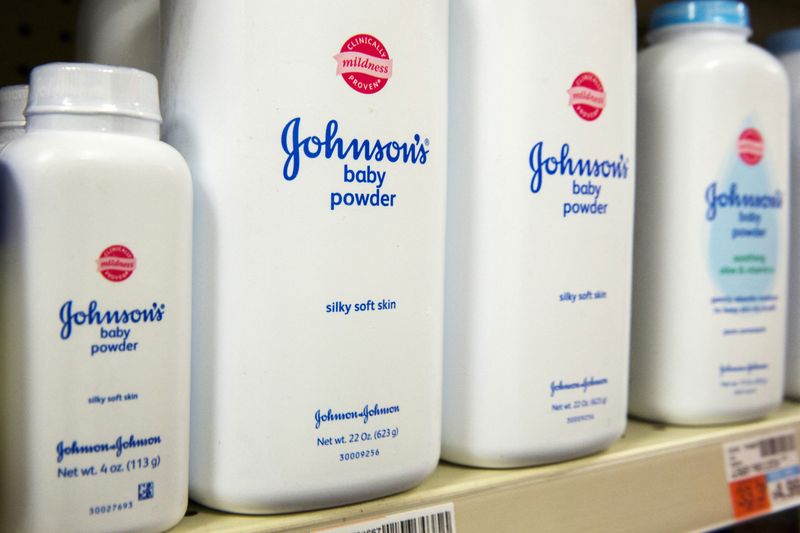
© Reuters. FILE PHOTO: Bottles of Johnson & Johnson baby powder line a drugstore shelf in New York October 15, 2015. REUTERS/Lucas Jackson
By Mike Spector
(Reuters) – Johnson & Johnson (NYSE:)’s subsidiary shouldering talc-related lawsuits goes before a bankruptcy judge on Tuesday for the first time since a U.S. appeals court last month nixed the company’s attempt to offload the litigation into Chapter 11 proceedings.
A three-judge panel of the Philadelphia-based 3rd U.S. Circuit Court of Appeals on Jan. 30 ruled that the J&J subsidiary’s bankruptcy case should be dismissed, finding it had no legitimate claim to Chapter 11 protection because it did not face financial distress.
Absent a reversal, the decision would force J&J back into trial courts to battle nearly 40,000 lawsuits alleging the company’s Baby Powder and other cosmetic products containing talc cause cancer.
J&J maintains its talc products are safe.
U.S. Bankruptcy Judge Michael Kaplan was set to preside over the hearing for the subsidiary, called LTL Management, in Trenton, New Jersey. J&J had no comment on the looming bankruptcy hearing.
LTL on Monday asked the full 3rd Circuit to reconsider the decision by the three-judge panel.
LTL’s bankruptcy put the deluge of talc cases on hold. At least one plaintiff has asked the bankruptcy judge to allow his case to proceed in California in the wake of the 3rd Circuit’s decision, a request expected to be reviewed at Tuesday’s hearing. LTL opposes the request.
The 3rd Circuit decision more broadly cast a cloud over J&J’s use of a maneuver known as the Texas two-step, named for a Texas law the company employed to carve its consumer business into two new subsidiaries.
In October 2021, J&J offloaded the tidal wave of talc lawsuits it faced onto one of its newly created units, LTL, which then declared bankruptcy. Reuters last year detailed the secret planning of Texas two-steps by Johnson & Johnson and other major firms in a series of reports exploring corporate attempts to evade lawsuits through bankruptcies.
J&J, with a market capitalization of more than $400 billion, has argued that the avalanche of lawsuits posed a serious financial threat. The company’s costs of verdicts, settlements and legal fees soared to about $4.5 billion, with no end in sight, according to bankruptcy-court filings.
The 3rd Circuit’s reasoning underscored what some legal experts call an inherent contradiction: bankruptcies being executed by multinational firms worth billions of dollars that were in little danger of running out of money to pay plaintiff-creditors.
LTL declared bankruptcy while J&J avoided seeking Chapter 11 protection, with all its inherent financial and reputational wreckage.
J&J said it generously financed LTL to ensure a fair settlement – better, the company and its subsidiary argued, than trial courts where some plaintiffs receive outsized payments while others receive little or nothing.
The 3rd Circuit found that J&J’s funding of the subsidiary, initially $2 billion and perhaps eventually more, undercut any claim of financial peril. In a petition seeking a rehearing filed Monday, a lawyer for LTL, Neal Katyal, called that reasoning “upside-down.”
A 2018 Reuters investigation found that J&J knew for decades that asbestos, a known carcinogen, was present in its Baby Powder and other cosmetic talc products. The company said in May 2020 it would stop selling talc-based Baby Powder in the United States and Canada, in part due to what it called “misinformation” and “unfounded allegations” about the product. The company later decided to stop selling talc-based Baby Powder globally starting this year. J&J has denied its talc contains asbestos.


Be the first to comment